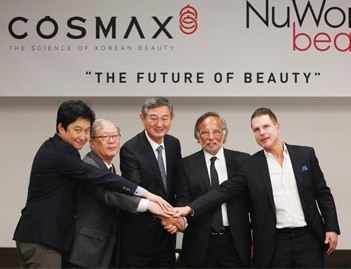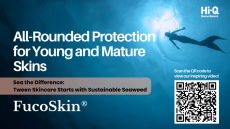China restricts Korean K-beauty influence

Reports from Chinese media have suggested that South Korea’s plans to install a new anti-ballistic missile defence system are responsible for the nation’s decision to impose restrictive broadcasting rules on the home of K-pop and K-beauty.
Financial outlook
Both entertainment and cosmetics brands have already seen a drop in shares, as the sectors are heavily prominent in China.
On 22nd November 2016, The Financial Times announced that even though South Korea’s Kospi index increased by 0.9%, a host of leading cosmetics retailers saw their shares drop. Korea Kolmar, Tonymoly and Cosmax BTI were among these, along with LG Household & Health Care which plummeted 5.8% and Amorepacific, down by 3.5%.
Political impact
"The ban is viewed as retaliation against Korea's decision to deploy the Terminal High Altitude Area Defense (THAAD) system," Korea Times said.
The complex and highly developed Terminal High Altitude Area Defense (THAAD) system, supplied by the US and built by Lockheed Martin and its the associated AN/TPY-2 tracking radar built by Raytheon has the capability to launch anti-ballistic missiles that can target objects both inside or outside the Earth's atmosphere.
While the US and South Korea hold that the THAAD will strengthen South Korea’s defence in the event of an attack by North Korea, China, which strongly opposed the use of THAAD and is anxious about its radar and surveillance functions, is now enforcing heavy restrictions on Korean entertainment.
A ban on TV drama productions and interviews with Korean-based K-pop and social media personalities throughout China may have an ongoing and detrimental effect on the financial landscape of Korean cosmetics and beauty companies.
Market ambitions
Last week, Cosmetics Design Asia highlighted several developments in South Korea and from its brands that strengthen its relationship with China and wider regions.
Chinese online retailing giant Alibaba and South Korea’s largest ODM Cosmax have recently signed a distribution agreement between the two countries in a bid to increase trade, while TonyMoly, a leading K-beauty retailer, has forged ahead with new plans to build a manufacturing plant in Jiaxing, Zhejiang province, China.
South Korea has also recently signed a free trade agreement with six Central American countries to expand Korea’s cosmetics and beauty presence.
As retailers outside of Korea, such as US-based Peach & Lily, exclusively specialise in Korean-inspired cosmetics and beauty innovations, brands looking to enter or grow in the Chinese marketplace may experience significant obstacles in light of China’s broadcasting regulations both in China and wider marketplaces, particularly if these extend to digital streams and social media.
In June 2016, the Chinese government stated that all foreign content and inspired content had to get official approval prior to broadcast, indicating the country's willingness to refuse broadcasting specific content.



















